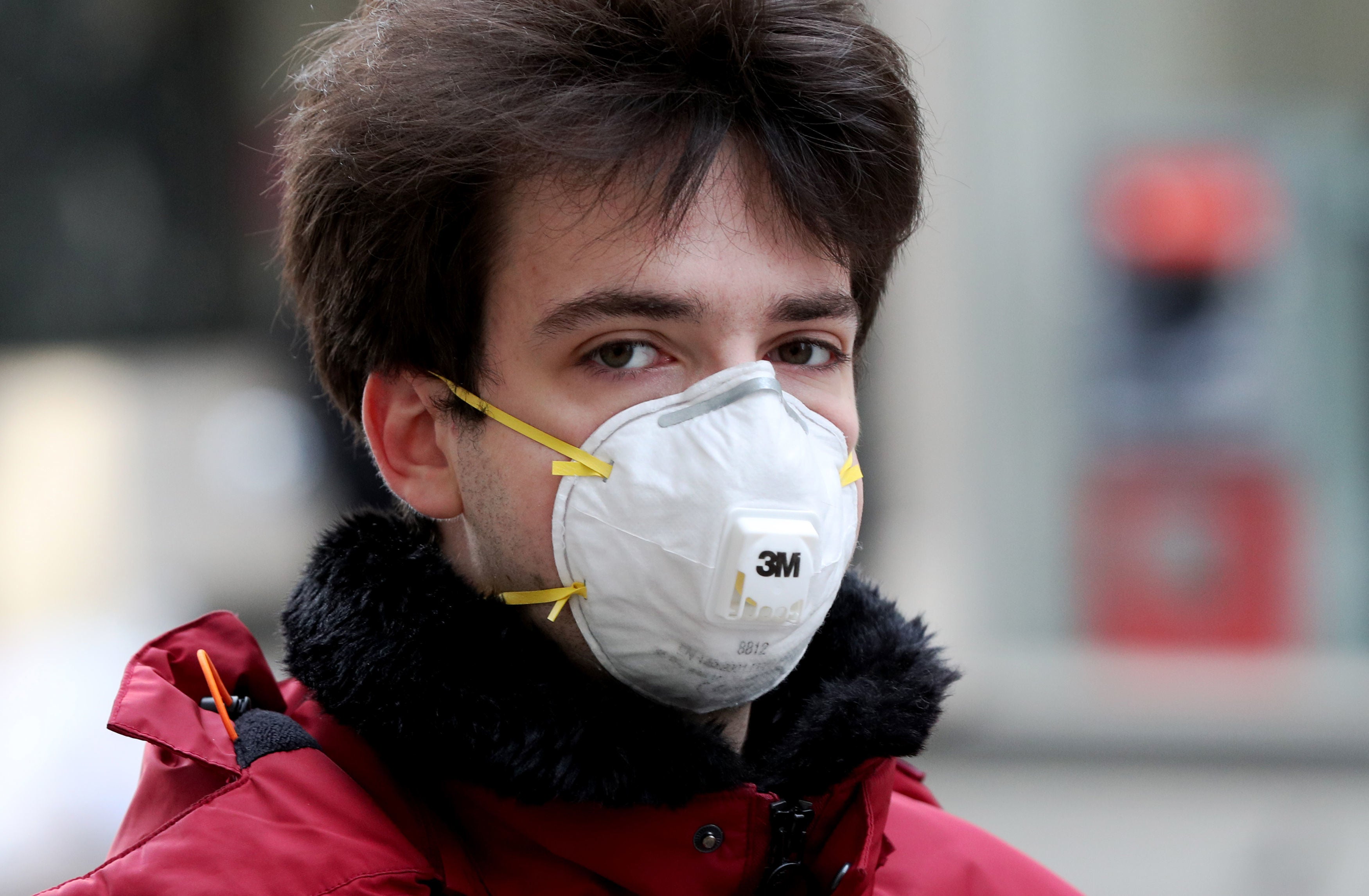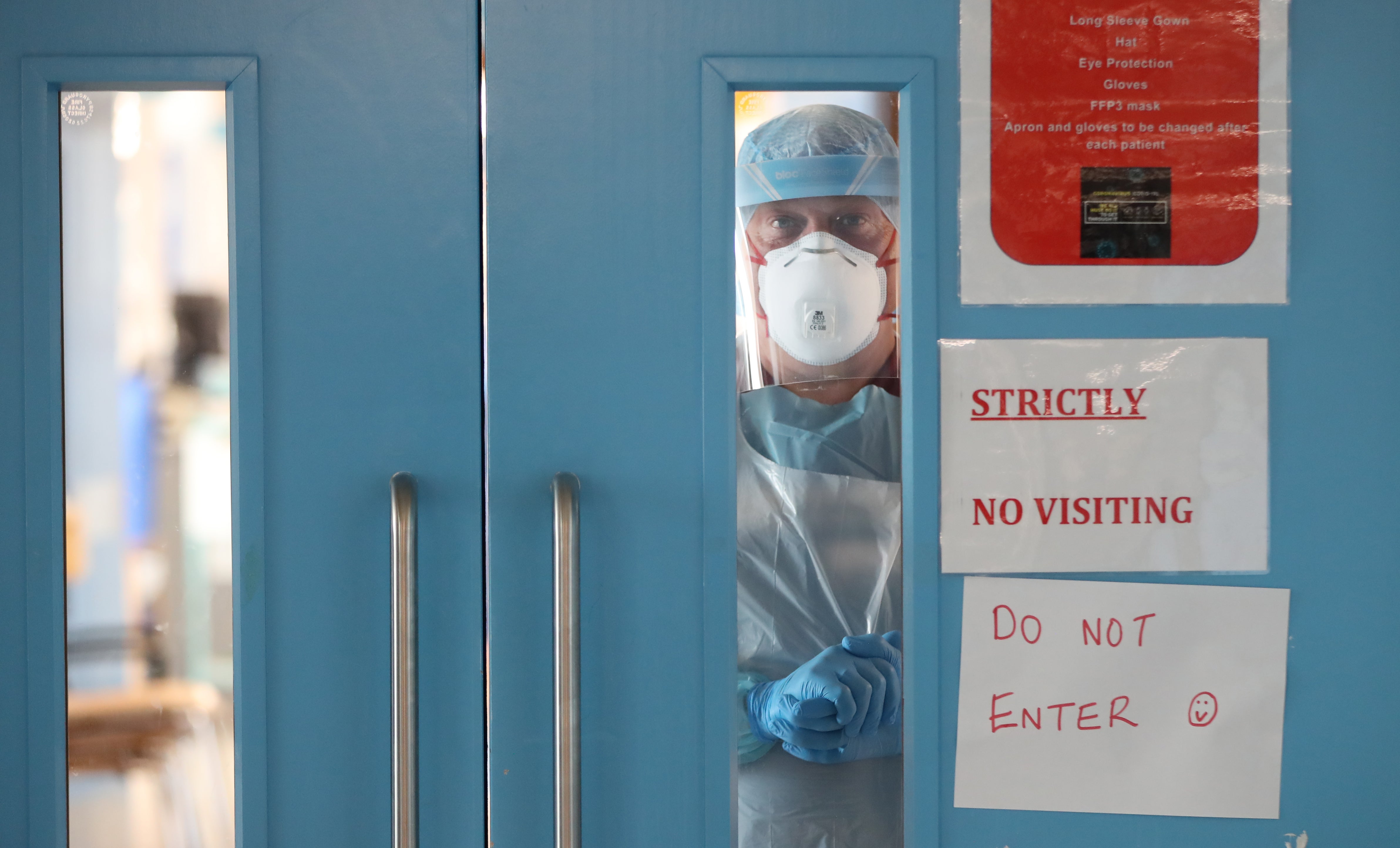How long are you infectious with Covid?
Covid cases are rising and warnings about reducing contact are being issued
Your support helps us to tell the story
From reproductive rights to climate change to Big Tech, The Independent is on the ground when the story is developing. Whether it's investigating the financials of Elon Musk's pro-Trump PAC or producing our latest documentary, 'The A Word', which shines a light on the American women fighting for reproductive rights, we know how important it is to parse out the facts from the messaging.
At such a critical moment in US history, we need reporters on the ground. Your donation allows us to keep sending journalists to speak to both sides of the story.
The Independent is trusted by Americans across the entire political spectrum. And unlike many other quality news outlets, we choose not to lock Americans out of our reporting and analysis with paywalls. We believe quality journalism should be available to everyone, paid for by those who can afford it.
Your support makes all the difference.For nearly three years, the Covid-19 pandemic brought the world to a standstill as the virus spread around the globe.
While lockdowns and tiers may now seem a distant memory, the virus is very much still with us.
Cases have begun to rise again, with warnings that Covid will once again put even more pressure on the NHS over this festive period.
The last major spike of the pandemic, while restrictions were still in place, came courtesy of Omicron. The variant spread rapidly around the world after being discovered in southern Africa last November and has since produced a series of sub variants.
Omicron proved to be less severe but more transmissible than its predecessor Alpha and Delta variants, with total daily case numbers in England rocketing to a then-pandemic-high of 218,724 on 4 January, before gradually falling away, bar a revival inspired by its first sub-variant, BA.2, in March.
Since then, only the over-75s have been offered second booster jabs, meaning that immunity could be beginning to wane and prompting calls for a new booster to be offered more widely.
The approval of Moderna’s new Omicron-specific jab is a welcome development for the UK in that regard and the shot could end up playing a significant role in any further vaccine drives to come.

Different strains, different impact
What public health officials had to learn on the fly when that variant first arrived last winter was how it differed from the original Covid strain.
Whereas the World Health Organisation estimated that symptoms took anywhere between two days to two weeks to materialise in cases of people infected with the first coronavirus strain, Omicron proved to incubate much faster, closer to three to five days.
“Recent analysis from the UK Health Security Agency suggests that the window between infection and infectiousness may be shorter for the Omicron variant than the Delta variant,” then-UK health secretary Sajid Javid told the House of Commons on 6 December 2021.
That explained why the strain was able to spread so swiftly and successfully, as the shortness of its incubation period gave sufferers a shorter window between suspecting they had contracted the virus and experiencing a flare-up, making it less likely a positive lateral flow test result would be recorded in time to warn others, enter isolation and prevent the contagion being passed on.
A shorter incubation period “makes a virus much, much, much harder to control”, Jennifer Nuzzo, an epidemiologist at the Johns Hopkins Center for Health Security, observed in The Atlantic that same month.
Another characteristic of Omicron that made it potentially harder to detect than earlier strains was that its symptoms differed somewhat from the three primary indicators we had been conditioned to be on the lookout for in 2020: coughs, fever and the loss of one’s sense of taste or smell.

Symptoms to watch out for
Early warning signs for the newer variant, by contrast, included a scratchy throat, lower back pain, a runny or blocked nose, a headache, muscle pains and fatigue, sneezing and night sweats.
Omicron cases analysed in Britain found that patients typically recovered within five days to a week on average, although some symptoms like coughing and fatigue were likely to linger for longer.
Shortness of breath, experienced by some sufferers, often proved to last for as long as 13 days after other symptoms had passed.
Covid patients are, typically, thought to be infectious to others from around two days before their first symptoms start to materialise and for around 10 days after.
If you believe you have symptoms associated with the coronavirus, the current NHS advice is to take a lateral flow test and isolate at home for five days if you test positive to avoid passing it on to others (you should keep away from anyone likely to be particularly vulnerable because of their age or a pre-existing condition for 10 days).
If you do have to go out in public, you are encouraged to wear a face mask, avoid crowded indoor spaces and wash your hands for at least 20 seconds.
If you are concerned about your symptoms or believe they are getting worse, you are advised to visit 111.nhs.uk, call 111 or call your local GP surgery.






Join our commenting forum
Join thought-provoking conversations, follow other Independent readers and see their replies
Comments